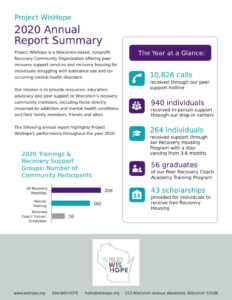Staying alone with one’s thoughts becomes an exercise of mindfulness when in the presence of alcohol and/or use disorder. A 2010 study revealed those with drug and/or alcohol dependency have a greater aptitude for high anxiety than those without dependency or individuals who are prone to abusing alcohol and/or substances. When anxiety spikes, the body sends panicked signals to the mind, which then compels an individual to act. “Do something,” the mind urges. “Anything!”
Thoughts of an anxious mind suggest flurries upon flurries of ways to escape feeling discomfort. In the attempt to regain control and return to comfort, anxious thoughts often press individuals to act in ways that can come back to bite them. The pent-up nature of anxiety can make it feel as if inaction will inevitably prevent any future feelings of being comfortable, when in fact the opposite is true. Rushing to act simply for action’s sake will have far greater negative repercussions than not taking unnecessary action. When the tickle of anxiety creeps up the central nervous system, try asking “What harm will inaction create?”
TURNING ONE MISTAKE INTO TWO
In marching band — this may sound random, but trust the process — musicians are judged on their ability to play music together and move together. Judges dock points from bands whenever a player moves out of rank. Players who halt out of formation may receive multiple negative marks for attempting to noticeably overcorrect. Such is the way with the high anxiety that accompanies alcohol and/or substance use disorder.
When anxiety begins to take over a person’s mental state, there is an underlying message that something is off. Interpreting this sensation as a mistake, the tendency can be for those experiencing anxiety to make efforts to “right the ship.” This instinct turns one mistake into two, usually with the overcorrection marking the more outstanding of the two. Nobody wants to sit in the discomfort of social anxiety or feelings of panic. Acting in response to these impulses, however, overlooks the reach of anxiety’s influence on anyone who also copes with alcohol and/or use disorder.
TAKE YOUR TIME
How many times have you rushed into a decision because you thought “something” should be done? Chances are these actions turned out to be unnecessary overreactions in hindsight. While action is necessary for recovering from alcohol and/or substance use disorder, the urge to act without direction and intention can play out like Wile E. Coyote air-walking off the cliff’s edge, only realizing the ground is baseless after it’s too late. Don’t be afraid to take your time, as the time-tested recovery adage urges.
Act with confidence and empowerment rather than the fear of judgment. The next time anxiety distorts logic and ramps up the passage of time, take a moment to self-reflect with breathing. Ask “Why is this action necessary?” and “In what ways might this be unnecessary?” Empowered actions form the cornerstones of recovery, so these foundational decisions should consist of thoughtfulness and care in contrast to impulsive and anxiety-driven rationale. Take action — not merely for the sake of escaping a moment — and do so intentionally.
THINKING IS DOING
Ruminating on the paths forward can be framed as inaction. Reframing the thinking done prior to making decisions emphasizes the importance of taking the time to make the right decision. When you sit down and contemplate the numerous ways to enact change in your life, you are actively doing something — using your brain. Undermining this necessary step reinforces the stigma that people must maintain productivity in order to retain value. Never feel guilty for taking an extra beat to sort through racing thoughts before acting.
Anxiety has a way of making those who are experiencing it feel trapped. Particularly for anyone in the process of recovering from alcohol and/or substance use, sitting with anxious thoughts challenges self-control and has the potential to trigger temptation. Instead of overextending the reach of one’s control, falling back on time-tested strategies can reduce stress while providing the comfort of security and routine.
Some time-tested strategies might include:
- Speaking with a peer or sponsor in recovery
- Connecting with your breathing to slow heart rate and calm the racing mind
- When anxiety increases, taking up simple mental tasks such as thinking of as many states as you can remember
- Removing yourself from stressful situations in order to collect your thoughts
- Drinking lots of water
- Putting on headphones to listen to a familiar and soothing song
- Going for a scenic walk through nature
The ability to sit and reflect on one’s own thoughts fundamentally presents an opportunity unique to human consciousness. It is understandable that this gift might overwhelm us at times. When the volume of thoughts turns up, focus on using the mind to quiet them, instead of your actions.
Anxiety has become a staple in compounding mental health diagnoses. Individuals coping with alcohol and/or substance use disorder may experience anxiety that triggers their temptation to use, coinciding with otherwise reckless behavior. The ability to insert a thoughtful pause can prevent snowballing a chain of events that stem from the roots of anxiety. Not every problem can be solved by a race across town or an impassioned speech. Some things just take time, and as hard as that may be to hear, it is crucial for each person to take their own time before acting. It might be hours, months, or even years, but you will know when it is time to act. All it takes is truthful check-ins with yourself. At WisHope, we understand that the road to recovery lasts a lifetime, and we strive to empower those in recovery with the help of resources, long after leaving a treatment facility or recovery home. Don’t wait to get help — call us today at (844) 947-4673.


